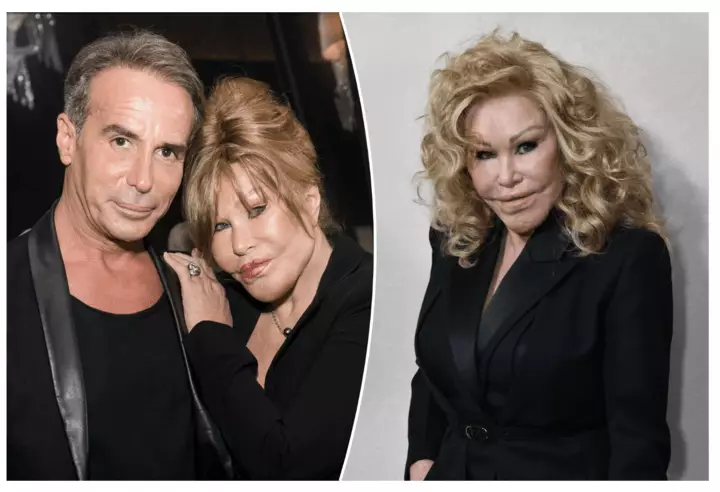Jocelyn Wildenstein, often referred to by the derogatory moniker “Catwoman,” was not just a symbol of extravagant living and plastic surgery; she was also a complex figure embroiled in the high-stakes world of wealth, fame, and personal drama. Her untimely death at the age of 79 has reignited conversations surrounding her life, relationships, and the public’s often harsh judgment. Lloyd Klein, Wildenstein’s long-time fiancé, offers a unique perspective, shedding light on the real Jocelyn Wildenstein and drawing attention to a life that was both fulfilling and fraught with challenges.
Klein, who spent 21 years with Wildenstein, describes her as “the love of my life,” and reflects on their relationship with profound sorrow. He insists that Wildenstein deserves to be remembered for her fabulous essence rather than for the financial and personal misfortunes that plagued her in later years. Their connection flourished amidst her financial complexities and public ridicule, emphasizing that Klein did not seek wealth or status from her, but rather cherished the time they spent together.
The couple’s life together was punctuated by both glamorous moments and painful realities, revealing the dichotomy of Wildenstein’s existence. According to Klein, she embodied resilience—despite facing the fallout from her tumultuous marriage to billionaire Alec Wildenstein, which involved a contentious divorce, accusations of infidelity, and a financial struggle that spanned years. Klein’s desperate wish for “dignity” for Wildenstein speaks volumes about the societal pressures and judgement that often accompany individuals in the public eye.
In life, Jocelyn wielded considerable wealth, reportedly receiving a divorce settlement of $2.5 billion, along with ongoing financial support from her ex-husband. However, reports of financial ruin followed her after significant payments were cut off by Alec’s family in 2015. Although Wildenstein filed for bankruptcy in 2018, Klein vehemently asserts that she was not broke at the time of her death. Instead, he claims her assets were simply tied up, creating a misleading perception of her financial state.
Despite the glamour and luxury she was associated with, Wildenstein’s later years were marked by financial distress, including repossession of her luxury apartments and looming debts. The turning point came when a painting she believed to be an asset—and a part of her divorce settlement—turned out to be a forgery, revealing a troubling aspect of her once-fortified financial security. Klein views these hardships as a significant part of her life story, indicating that her true worth went far beyond the balance sheet.
Jocelyn became the focal point of public scrutiny due to her extensive cosmetic surgeries. Critics often sensationalized her appearance, dubbing her “Catwoman,” a label that she disliked but ultimately came to accept with a sense of humor. Klein succinctly summarizes this paradox: “Today, you walk in New York and Palm Beach or LA and everyone has done surgery. There are a bunch of Jocelyns there, but maybe she was the first one doing what she did.” This perspective invites a conversation about societal standards of beauty and self-acceptance in an age where extreme alterations have become normalized, offering a curious juxtaposition to Wildenstein’s experience.
Jocelyn’s journey, like many public figures, highlights the tension between individual choice and societal expectation. Klein notes that despite the ridicule and disdain aimed at her, Wildenstein’s unique charm, humor, and vibrancy were undeniable components of her character.
A Lasting Influence
Klein hopes to honor Wildenstein’s memory by ensuring her legacy is one of beauty and strength rather than ridicule. In their final days together, they shared intimate moments filled with laughter, love, and mutual support. The couple often spoke about sharing their final resting place, lending a lighthearted touch to an otherwise somber topic, while reflecting the richness of their relationship.
As Wildenstein’s story unfolds in the wake of her passing, Klein’s vow to celebrate her life serves as a poignant reminder of the complexities of human relationships, the pain of judgments rendered, and the memories cherished amidst the chaos. Whether viewed through the lens of her extravagant lifestyle or her tumultuous experiences, Jocelyn Wildenstein’s life is a tapestry that encompasses much more than meets the eye, and her legacy will continue to inspire discussions about beauty, love, and resilience.

